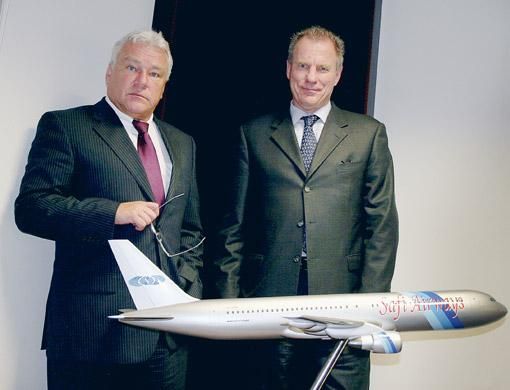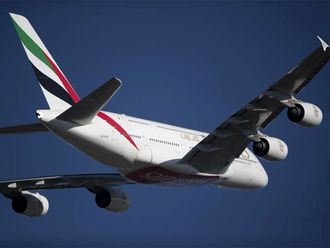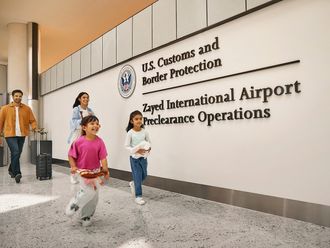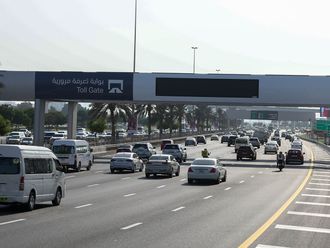Dubai/Kabul: Safi Airways, Afghanistan's largest privately-owned airline, is pursuing ambitious expansion plans despite unstable political conditions and an unpredictable security situation in the country.
The airline, which is the only one based in Afghanistan certified by the International Civil Aviation Organisation - meaning that it fulfils the required standards to land at international airports - will add several long-haul and mid-range destinations to its summer timetable for 2010, Safi Airways' new president and CEO, Tilmann Gabriel, told Gulf News in an exclusive interview.
Safi will launch flights from Kabul to Moscow, Beijing, Delhi, Jeddah, Doha and Islamabad, Gabriel said.
Currently, Safi is flying from Kabul to Dubai, Abu Dhabi, Sharjah, Kuwait and Frankfurt in Germany. The Frankfurt route launched earlier this year has done much to build the carrier's image as it is the only direct flight from Afghanistan into the EU. The seven-hour flights three times a week have been carried out with "100 per cent reliability" - meaning no flight was ever cancelled - and "97 per cent punctuality, all a novelty in Afghanistan", he said.
Many of the flight passengers on this route are described as so-called "ethnic traffic", expatriate Afghans returning to their home country. Germany has - besides the UK and the Netherlands - Europe's largest Afghan expatriate community. Non-government organisations, contracting companies, and the German federal police which are operating training camps for security personnel in Afghanistan also contribute to the passenger numbers. All these categories are obliged to fly with an internationally certified airline as per their employers' standards, Gabriel said. Only the German Army, a part of the ISAF coalition in Afghanistan, is using its own planes for troop transport.
Inspired by this success, Safi is committed to add new planes to its fleet and hire the necessary staff to serve the new routes, Gabriel said. The German ex-Lufthansa pilot joined Safi in March 2009 as president and CEO, together with Werner Borchert, also a German, as chief operating officer. Both developed a business plan that aims to lead Safi Airways to profitability by 2011, and, after two profitable years, to raise fresh capital for further expansion on the stock exchange - either in Abu Dhabi or in Dubai - Gabriel said. Safi Airways is incorporated in Afghanistan but its headquarters are located in Dubai. The company, which has a signed equity of $100million (Dh367 million), is owned by the Dubai-based Safi family. The Safi Group is into steel and oil trade, construction, agriculture, export and in the hotel and travel business. The airline is also president Karzai's "first choice" for state flights, Gabriel said.
Pilots and technical flight personnel have been hired from airlines such as Sterling (Denmark), XL Airways (UK), Air Alaska and others, the top management in its majority is Lufthansa-related. Training of staff and maintenance of the long-haul plane is done in Frankfurt. UAE-bound planes are maintained by Dnata. Forty per cent of the flight attendants are Afghans, the rest "from all over the world", Gabriel said.
Kabul Werner Borchert, Safi Airways' chief operating officer and pilot on the carrier's Frankfurt flights, tells of the problems he faces when landing at Kabul airport.
One of the biggest concerns is the poor airport management, he said, causing multiple logistical problems related to ground handling of the airplane, passengers and baggage. The flight traffic control system, even if operated by ISAF-trained staff, is also not compliant to international standards, as controllers speak poor English and the technical equipment is outdated.
Bad quality of the tarmac of the landing strip causes excessive tyre wear and tear, and the proximity of the military airport makes it necessary to carefully assess were the civilian planes can be parked safely, Borchert said.












